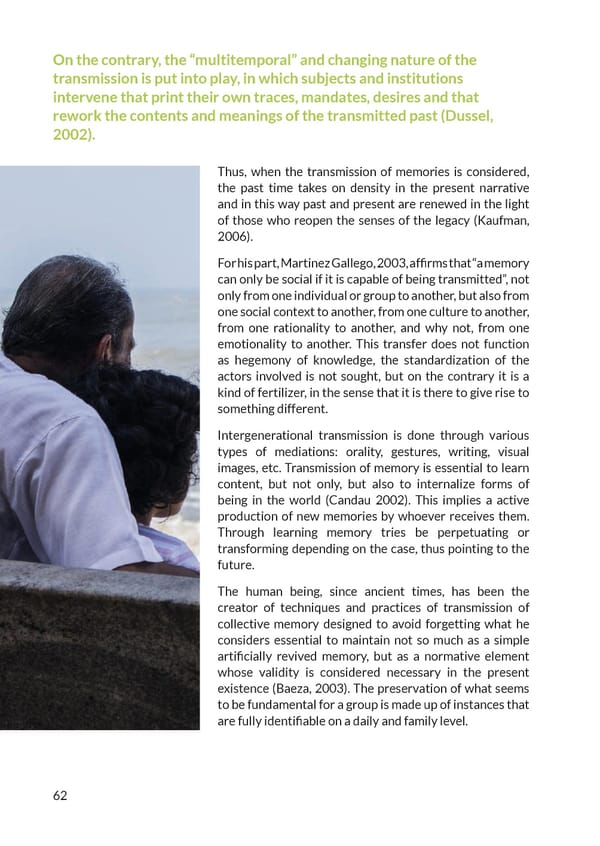On the contrary, the “multitemporal” and changing nature of the transmission is put into play, in which subjects and institutions intervene that print their own traces, mandates, desires and that rework the contents and meanings of the transmitted past (Dussel, 2002). Thus, when the transmission of memories is considered, the past time takes on density in the present narrative and in this way past and present are renewed in the light of those who reopen the senses of the legacy (Kaufman, 2006). For his part, Martinez Gallego, 2003, affirms that “a memory can only be social if it is capable of being transmitted”, not only from one individual or group to another, but also from one social context to another, from one culture to another, from one rationality to another, and why not, from one emotionality to another. This transfer does not function as hegemony of knowledge, the standardization of the actors involved is not sought, but on the contrary it is a kind of fertilizer, in the sense that it is there to give rise to something different. Intergenerational transmission is done through various types of mediations: orality, gestures, writing, visual images, etc. Transmission of memory is essential to learn content, but not only, but also to internalize forms of being in the world (Candau 2002). This implies a active production of new memories by whoever receives them. Through learning memory tries be perpetuating or transforming depending on the case, thus pointing to the future. The human being, since ancient times, has been the creator of techniques and practices of transmission of collective memory designed to avoid forgetting what he considers essential to maintain not so much as a simple artificially revived memory, but as a normative element whose validity is considered necessary in the present existence (Baeza, 2003). The preservation of what seems to be fundamental for a group is made up of instances that are fully identifiable on a daily and family level. 62
 MemoryHandbook new Page 61 Page 63
MemoryHandbook new Page 61 Page 63